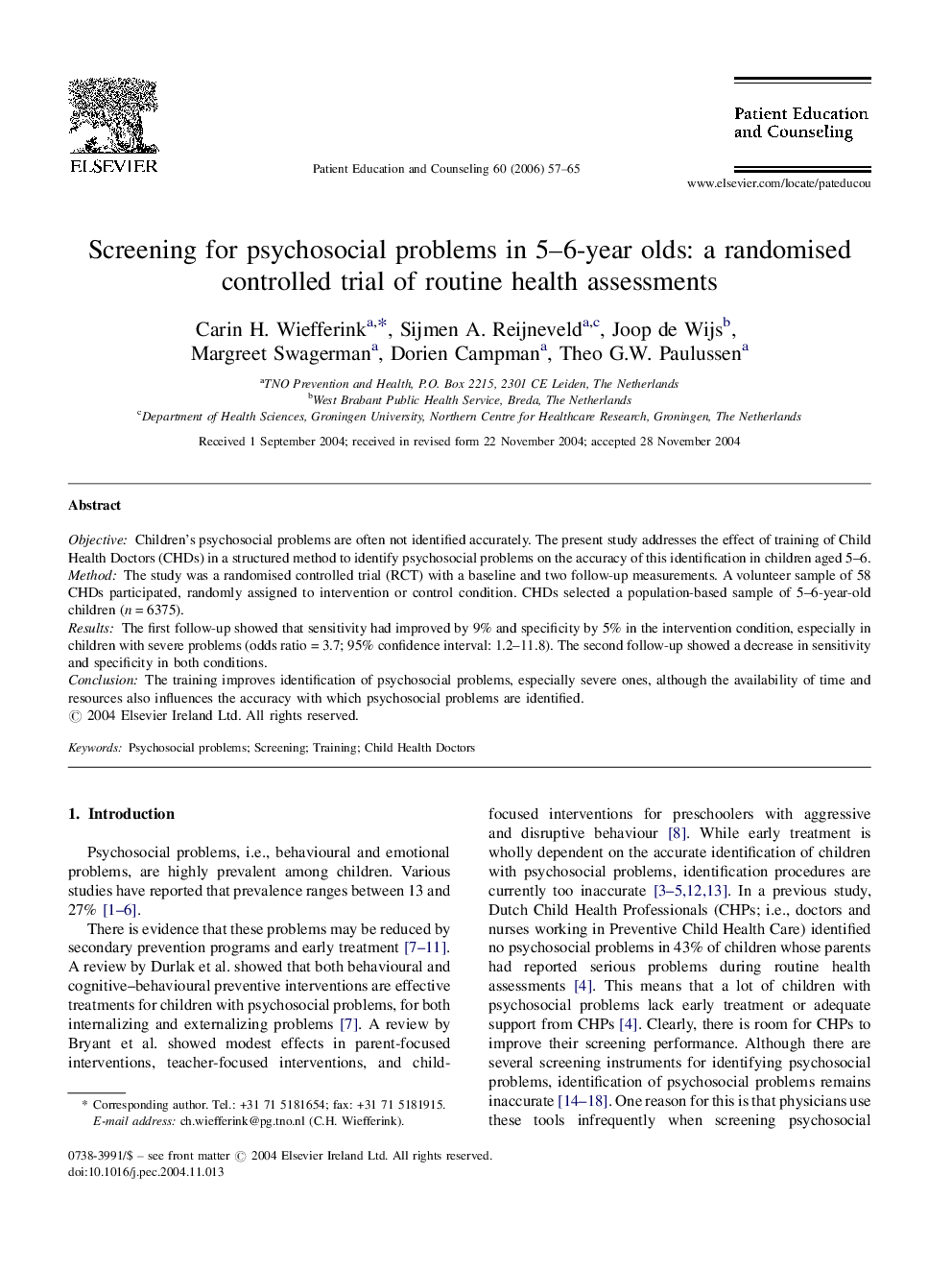| کد مقاله | کد نشریه | سال انتشار | مقاله انگلیسی | نسخه تمام متن |
|---|---|---|---|---|
| 3815743 | 1246094 | 2006 | 9 صفحه PDF | دانلود رایگان |

ObjectiveChildren's psychosocial problems are often not identified accurately. The present study addresses the effect of training of Child Health Doctors (CHDs) in a structured method to identify psychosocial problems on the accuracy of this identification in children aged 5–6.MethodThe study was a randomised controlled trial (RCT) with a baseline and two follow-up measurements. A volunteer sample of 58 CHDs participated, randomly assigned to intervention or control condition. CHDs selected a population-based sample of 5–6-year-old children (n = 6375).ResultsThe first follow-up showed that sensitivity had improved by 9% and specificity by 5% in the intervention condition, especially in children with severe problems (odds ratio = 3.7; 95% confidence interval: 1.2–11.8). The second follow-up showed a decrease in sensitivity and specificity in both conditions.ConclusionThe training improves identification of psychosocial problems, especially severe ones, although the availability of time and resources also influences the accuracy with which psychosocial problems are identified.
Journal: Patient Education and Counseling - Volume 60, Issue 1, January 2006, Pages 57–65